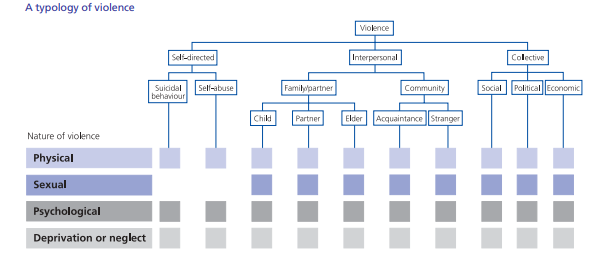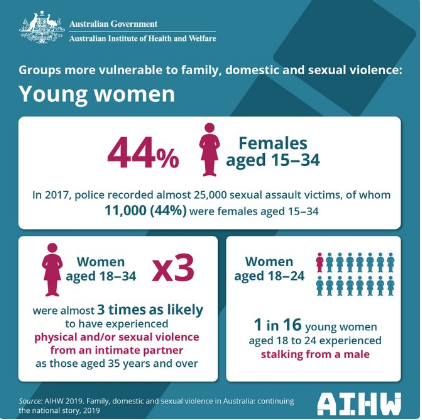Global Citizenship Essay
Question
Task: This is a research essay assessment linked to the Global Citizenship Essential. The questions address the nature, significance and implications of modern containment as a ‘global’ phenomenon.
Questions
Choose one of the following questions to respond to:
1. What is global citizenship and how does it encourage us to respond when confronted with
abuse and violence in prison settings within and outside Australian borders?
a. Discuss with reference to at least one example of abuse/violence in prison/s abroad
and one example from within Australia.
2. How have colonialism and globalisation influenced the development and spread of modern
containment? What implications does this have upon understandings of ourselves as ‘global
citizens’ in Australia today?
a. Discuss with reference to at least one example of the development of modern
containment outside Europe.
3. How has modern containment developed to control and restrict migration and supposed
‘threats’ from those deemed national ‘outsiders’? What implications does this have upon
understandings of ourselves as ‘global citizens’ in Australia today?
4. In what ways does modern containment reflect and reproduce gender, racial and/or class
inequalities? How does a conception of global citizenship help to challenge or resist these
impacts? Discuss with reference to either:
a. Asylums and contemporary issues surrounding mental health and incarceration; or
b. Reformatories and youth detention: or
c. Indigenous experiences of containment.
Answer
Introduction
The present global citizenship essay will be based on understanding the concept of global citizenship, its practices, which helps in responding to the abuse and violence in prison settings within and outside Australian borders on instant basis. The study examined in the global citizenship essay will also focus on understanding the responsibilities of the global citizens along with using modern containment as a global practice. The importance of the Global citizens for having knowledge about the modern containment is essential and hence will be discussed throughout the study in detailed manner.
Discussion
1. Global citizenship and how it encourages responding to confront abuse and violence in prison settings within and outside the Australian borders
The Global Citizen friendship refers to an idea of the people processing rights and civic responsibilities in order to become a member of the world. Followed by, having whole world sensibilities and philosophies, rather than being a citizen of a particular nation or place. The idea thus infers knowledge that once identity transaction geography of political borders as well as the rights and responsibilities, which are derived from membership in other class "humanity.” Characteristics of a Global Citizen includes being aware and understanding of the things happening around the surrounding areas and global across the world (Dej & Kilty, 2018). This will help them to take an active role in the community e works or steps towards contributing to the improvement of the environment and maintaining its sustainability. The importance of being a Global Citizen will be helping as well as encouraging and the individual residing within the regions of Australia, outside for thinking critically and deeply about what is equitable and just, and what will be required to do for decreasing the threat to our planet. Further, it is crucial for having knowledge about the subject from prisons to detention centres, interrogating containment, as this will be able to help in understanding the theory of La Trobe's global citizen essential. This is required to be learnt in order to live within an interconnected world and adapting yourselves with the economic, social, and physical challenges that are occurring within the current environment. During the themes of global citizenship with father be able to enhance the confidence of the citizens towards their approach of beliefs, own perspectives, skills, ethics and confidence. Hence, this will further be advantageous for taking appropriate decision-making.

Figure 1: Typology of violence
Source: (Owen,Wells & Pollock, 2017)
Reviewing of the typology of violence provided in the global citizenship essay, it can be observed that the types of violence are categorized as the physical, sexual, psychological and neglect or deprivation, thus, the approaches that can be taken for reducing the same in order to help in the growth and development of the individuals for becoming global citizens are important. Hence, the approaches that can be taken will be conducting of educational programs, which will be including providing vocational training to the underprivileged youths without differentiating them as per their genders, incentives for pupils for completing their secondary schooling. Along with this different holding kind of training programs for increasing the awareness of the individuals and successfully confronting the abuse or violence by them in the crisis situation such as within the prison settings within or outside the Australian borders. The other features of The Global Citizen include being open-minded and confident in nature. The picture of open-minded will be able to help the citizens for easily communicating with others without getting involved in contract situations and determining the result generated from the conversation. This can be a factor in case of any situations for incidences that have taken place and impacted on the individual. The open-ended conversation will also then to create a positive impact on the other person or individual and help them overcome their problems within less interval of time. Confidence is another key factor of a global citizen, which encourages them to protest against any violence or abuses in the prison setting within and outside Australian borders (Kilty & Dej, 2018).). Provided it should be noted that violence or abuse is evident in all the countries and is a universal scourge that tears at the fabric of the communities along with threatening the lives of the individuals. The data gathered from the study used to develop this global citizenship essay further reveals that around 1.6 million across the globe lose their lives due to becoming a subject of the violence of abuses such as sexual, physical or mentally giving rise to further health problems.

Figure 2: Representation of the percentage of women as victims of violence and abuse
Source: (Taylor & Mumford, 2016)
From the diagram above, it can be said that the most females and the women residing within the societies are exposed to encounter the danger of violence and abuses as per the report of the Australian Institute of Health and Welfare.
Key issues of global containment
The key issues discussed in the segments of global citizenship essay, which are found to have been greatly influencing the women imprisonment within or outside the Australian borders, are found to be responsible for non-violent offences. This is due to the reason when encountering the behaviour being a victim of the violent offences they are likely to the community the crime for ensuring their own safety against their male partners or someone else (Peterie, 2018). Followed by, the other crimes committed by them includes the drug-related offences such as they are caught for drug trafficking along with the offences committed comprises of the property crimes such as fraud and theft.
What is the significance of modern containment as a global practice in the context of this global citizenship essay?
The significance of the modern containment practices by global citizens requires updating the norms of the regulations, practices and policies for facilitating safety and security of the women prisoners, which is on the other hand growing at a rapid pace is evident. Therefore, the changes made within the legislation should be aiming towards ensuring that women enjoy equal rights during the trial procedures within the law and in practice. This should also be abiding by the norms of Article 9 (3) and 14 of the ICCPR. Followed by, categorizing of the crimes committed accordingly, such as minor or non-violent offences in order to prove proper medical or psychiatric treatment to those who are in need on time. Further, the significance of the modern containment requires to be affiliated by providing legal assistance during their arrest within the prison setting within or outside the Australian borders (Muir-Cochrane & Gerace, 2016). The presence of the legal assistance on arrest abides by the regulations of the International Covenant on Civil and Political Rights, Articles 9 (3) and 14 for setting out the key safeguards and guarantees that are applicable to the victims during the appellate stages and the pre-trial periods.
Conclusion
The completion of the study developed in the global citizenship essay has been able to increase the existing knowledge and vocabulary. This is beneficial for providing deeper insights into the practices of The Global Citizen, which tend to encourage motivate them for protecting against any violence or abuses encountered by them. Therefore, the study outlined in the global citizenship essay shows that the citizen's residing within Australia all the weather of the importance of having knowledge emphasize more on providing proofed education to all the citizens residing within. This particular initiative has been taken in order to help them become more confident and aware in nature. This will help them to understand the things happening around them and become a Global Citizen effectively as well as a protest against any abuse or violence in prison settings within and outside the country.
Reference List
Dej, E., & Kilty, J. M. (2018). Global citizenship essay Conclusion: Expanding the Concept of ‘Containment’. In Containing Madness (pp. 267-280). Palgrave Macmillan, Cham.
Kilty, J. M., & Dej, E. (2018). Introduction: Psy, Gender, and Containment. In Containing Madness (pp. 1-12). Palgrave Macmillan, Cham.
Muir-Cochrane, E., & Gerace, A. (2016). Containment practices in psychiatric care. In Power and the psychiatric apparatus (pp. 113-138). Routledge.
Owen, B., Wells, J., & Pollock, J. (2017). In search of safety: Confronting inequality in women's imprisonment (Vol. 3). Univ of California Press.
Peterie, M. (2018). Deprivation, Frustration, and Trauma: Immigration Detention Centres as Prisons. Refugee Survey Quarterly, 37(3), 279-306.
Taylor, B. G., & Mumford, E. A. (2016). A national descriptive portrait of adolescent relationship abuse: Results from the National Survey on Teen Relationships and Intimate Violence. Global citizenship essay Journal of interpersonal violence, 31(6), 963-988.












